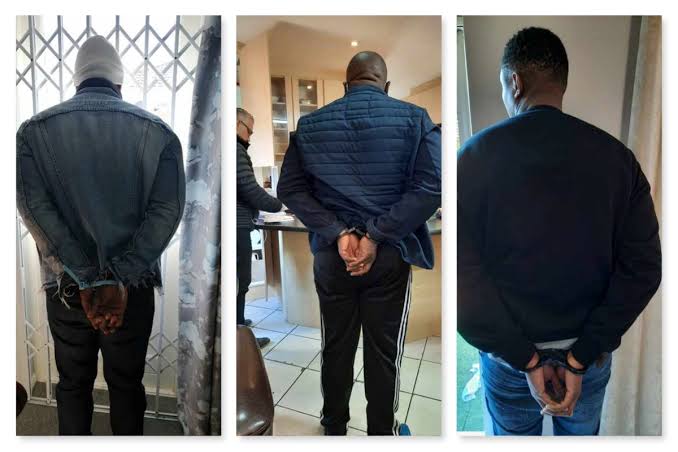The Cape Town Magistrate’s Court has approved the extradition of alleged Black Axe syndicate members who are Nigerians to the United States after Magistrate Ingrid Arntsen determined there was sufficient evidence for prosecution.
According to South Africa’s Independent Online news outlet on Tuesday, the court, as per the Western Cape National Prosecuting Authority, acknowledged the validity of the US-issued certificate and found ample evidence against the accused.
The seven suspects who are all Nigerians linked to the alleged romance scam are: Perry Osagiede, Enorense Izevbiege, Franklin Edosa Osagiede, Osariemen Eric Clement, Collins Owhofasa Otughwor, Musa Mudashiru and Prince Ibeabuchi Mark.
The eighth suspect, Toritseju Gabriel Otubu, had his extradition inquiry separated from the others and awaits judgment on April 12. He’s currently out on bail exceeding R200,000.
“Judgment will be delivered on his extradition on April 12,” said NPA spokesperson Eric Ntabazalila.
The charges against the group include wire fraud conspiracy, money laundering conspiracy, and aggravated identity theft.
The state alleges they used false identities to deceive victims into sending money to South Africa.
“Using false identities and representations, the respondents and their co-perpetrators would convince victims they were in romantic relationships with the online personas they fabricated, which often purport to be engineers and managers working on a project in South Africa.
“The accused would then allegedly sway their victims to send money directly or to permit others to send money through their financial accounts, to South Africa.”
Ntabazalila said the case has been in court since January 2022.
Otubu has additionally requested the court to rule on how the principle of double criminality should be interpreted in this extradition proceeding.
“The court decided that since the ruling would affect other respondents, they should be allowed to address the court.”

